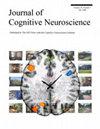Model Virtues in Computational Cognitive Neuroscience
IF 3.1
3区 医学
Q2 NEUROSCIENCES
引用次数: 0
Abstract
There is an abundance of computational models in cognitive neuroscience. A framework for what is desirable in a model, what justifies the introduction of a new one, or what makes one better than another is lacking, however. In this article, we examine key qualities (“virtues”) that are desirable in computational models, and how these are interrelated. To keep the scope of the article manageable, we focus on the field of cognitive control, where we identified six “model virtues”: empirical accuracy, empirical scope, functional analysis, causal detail, biological plausibility, and psychological plausibility. We first illustrate their use in published work on Stroop modeling and then discuss what expert modelers in the field of cognitive control said about them in a series of qualitative interviews. We found that virtues are interrelated and that their value depends on the modeler's goals, in ways that are not typically acknowledged in the literature. We recommend that researchers make the reasons for their modeling choices more explicit in published work. Our work is meant as a first step. Although our focus here is on cognitive control, we hope that our findings will spark discussion of virtues in other fields as well.计算认知神经科学中的美德模型。
认知神经科学中有大量的计算模型。然而,对于什么是理想的模型、什么是引入新模型的理由、什么是一个模型优于另一个模型,我们还缺乏一个框架。在本文中,我们将探讨计算模型所应具备的关键品质("优点"),以及这些品质之间的相互关系。为了保持文章的可控范围,我们将重点放在认知控制领域,并在此基础上确定了六个 "模型优点":经验准确性、经验范围、功能分析、因果细节、生物学可信性和心理学可信性。我们首先说明了这些优点在已发表的斯特罗普建模工作中的应用,然后讨论了认知控制领域的建模专家在一系列定性访谈中对这些优点的看法。我们发现,"优点 "是相互关联的,它们的价值取决于建模者的目标,而这一点在文献中通常没有得到承认。我们建议研究人员在发表的作品中更明确地说明其建模选择的原因。我们的工作旨在迈出第一步。虽然我们在这里的重点是认知控制,但我们希望我们的发现也能引发其他领域对美德的讨论。
本文章由计算机程序翻译,如有差异,请以英文原文为准。
求助全文
约1分钟内获得全文
求助全文
来源期刊
CiteScore
5.30
自引率
3.10%
发文量
151
审稿时长
3-8 weeks
期刊介绍:
Journal of Cognitive Neuroscience investigates brain–behavior interaction and promotes lively interchange among the mind sciences.

 求助内容:
求助内容: 应助结果提醒方式:
应助结果提醒方式:


